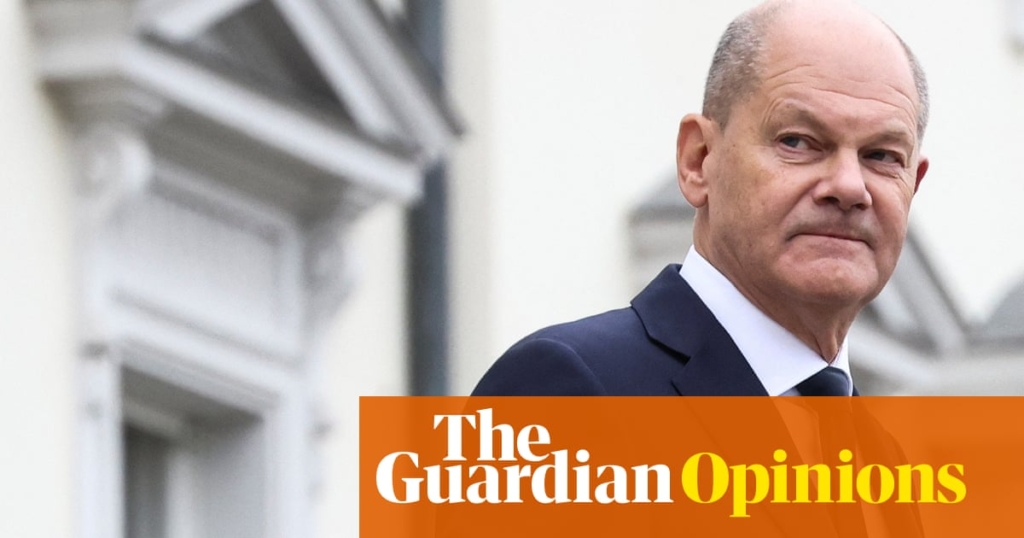Spying a possible silver lining to events in the US, some commentators have speculated that the re-election of Donald Trump may at least concentrate minds among mainstream European leaders. Faced with a rapidly emerging new world order, and with homegrown far-right movements making the political weather, their response has at times appeared sluggish and unconvincing. Perhaps the shock of Trump 2.0 will finally convey the fierce urgency of now.
The sudden collapse of Germany’s fractious SPD‑led coalition government, as the US election verdict became clear, certainly points to a quickening of the political tempo. Olaf Scholz is a famously cautious, meticulous politician, with a reputation for equivocating. Not last week. In summarily sacking his finance minister, Christian Lindner, and triggering the exit of the Free Democratic party (FDP) from the government, Chancellor Scholz launched a sequence of events that will lead to snap elections in the spring, or even earlier.
Mr Scholz’s patience finally ran out during vital budget negotiations, when Mr Lindner – who leads the economically liberal FDP – once more made clear his determination to block SPD and Green-backed spending aimed at reviving Germany’s moribund economy and supporting Ukraine. At one level this could be viewed as futile manoeuvring aboard a sinking electoral ship as the iceberg looms. Mr Scholz’s disunited coalition has become deeply unpopular. Languishing at below 5% in the polls, the FDP may well have quit before a federal election due in September anyway.
But the ramifications of last week’s drama transcend the internal politics of the coalition. The immediate downside is obvious and significant. Germany – like France, following Emmanuel Macron’s midsummer miscalculations – will now endure a period of instability under a weak minority government. This is less than ideal as Mr Trump pledges to reset western policy on Ukraine and bully the European Union over trade. At a crucial moment, the fabled Franco-German “engine” of European integration and unity is spluttering and wheezing.
In a multipolar world where old free-trade orthodoxies are crumbling, Mr Scholz’s gamble also marks a fork in the road for a country that has remained loyal to economic nostrums which look increasingly dated. The fallout from the war in Russia, China’s emergence as a menacing competitor and the prospect of a more protectionist America pose an existential threat to Germany’s crisis-torn industrial economy. Mr Scholz’s Green deputy, Robert Habeck, has called for a debt-financed investment fund to kickstart recovery and cushion the impact of insecure times on blue-collar voters.
Mr Lindner instead advocated reductions in welfare benefits, tax cuts and an easing off on national climate targets to balance the budget. As the finance minister of the EU’s biggest, most powerful economy, he has also set the policy tone in Brussels, where Germany’s opposition to the idea of common EU borrowing mechanisms has hobbled the response to challenges such as investing in the green deal.
Along with the fate of Ukraine’s resistance to Vladimir Putin, and the rise of the far right, the future of Germany and Europe’s economic model will be a key theme in the new age of Trump. Historically, Berlin’s fiscal caution has dominated this debate, but different times demand a different approach. Whether an unexpected spring election in Germany can deliver one, given Mr Scholz’s standing in the polls, is another matter.





Yorumlar kapalı.